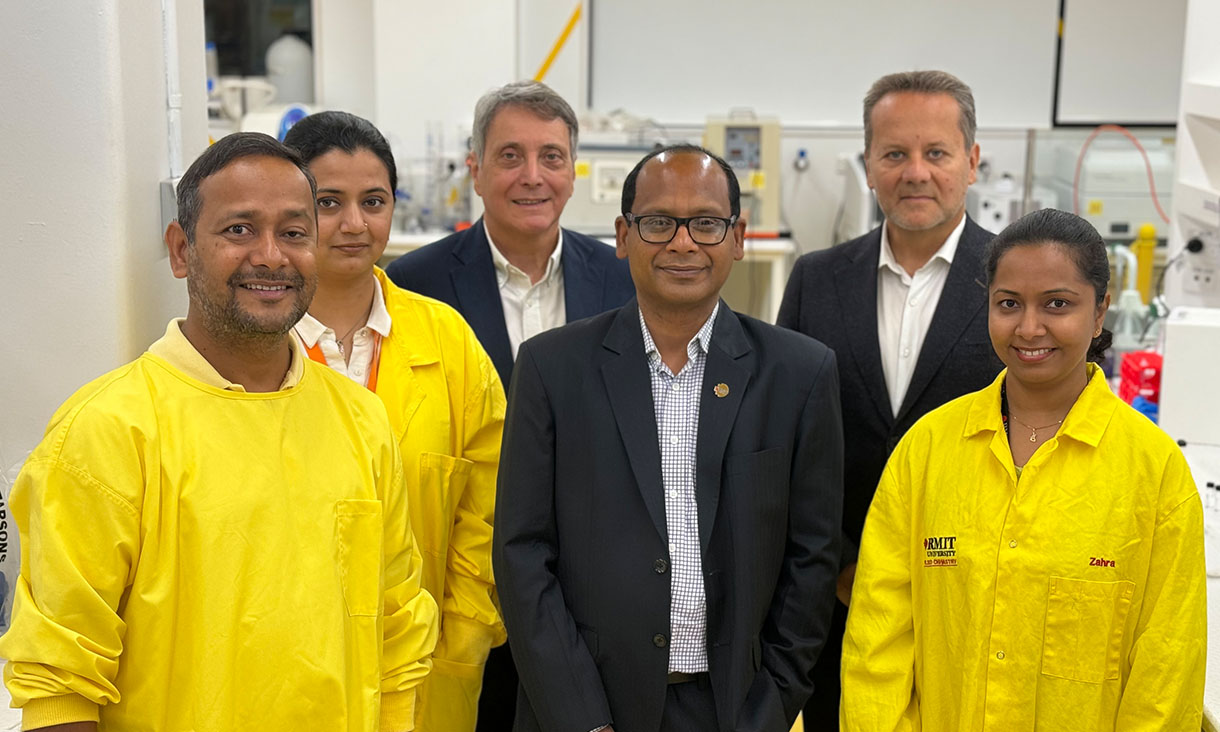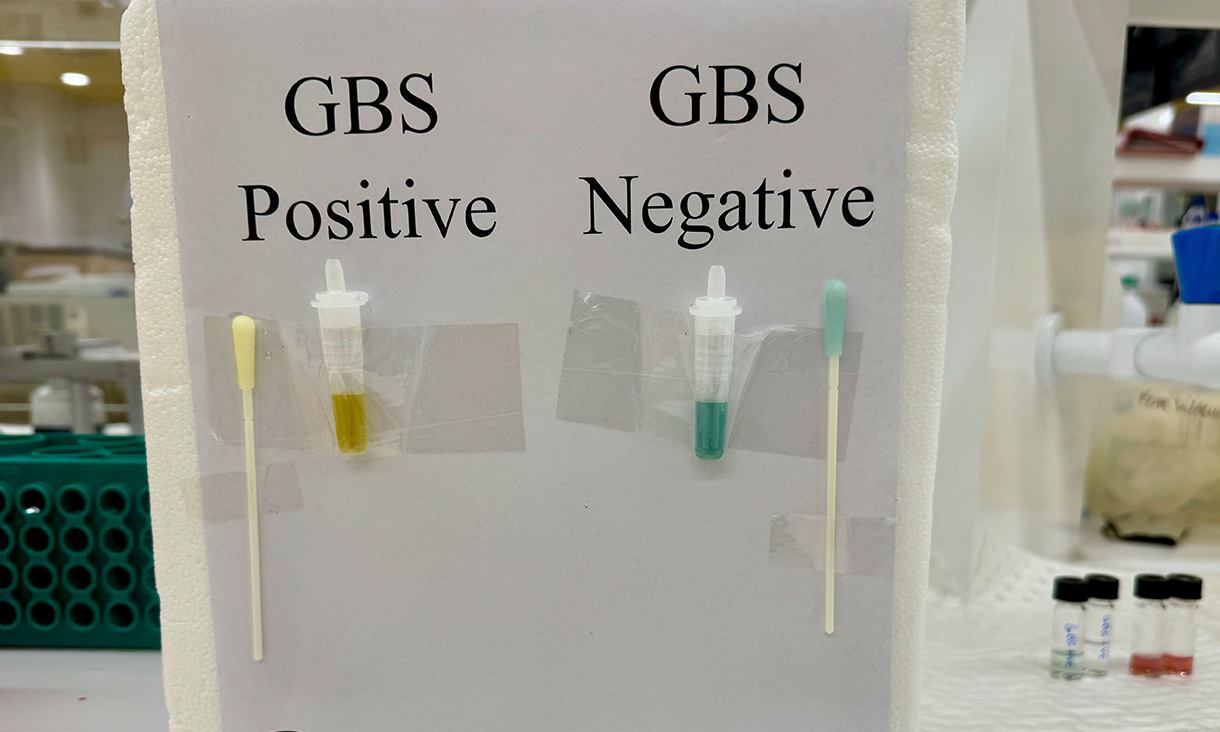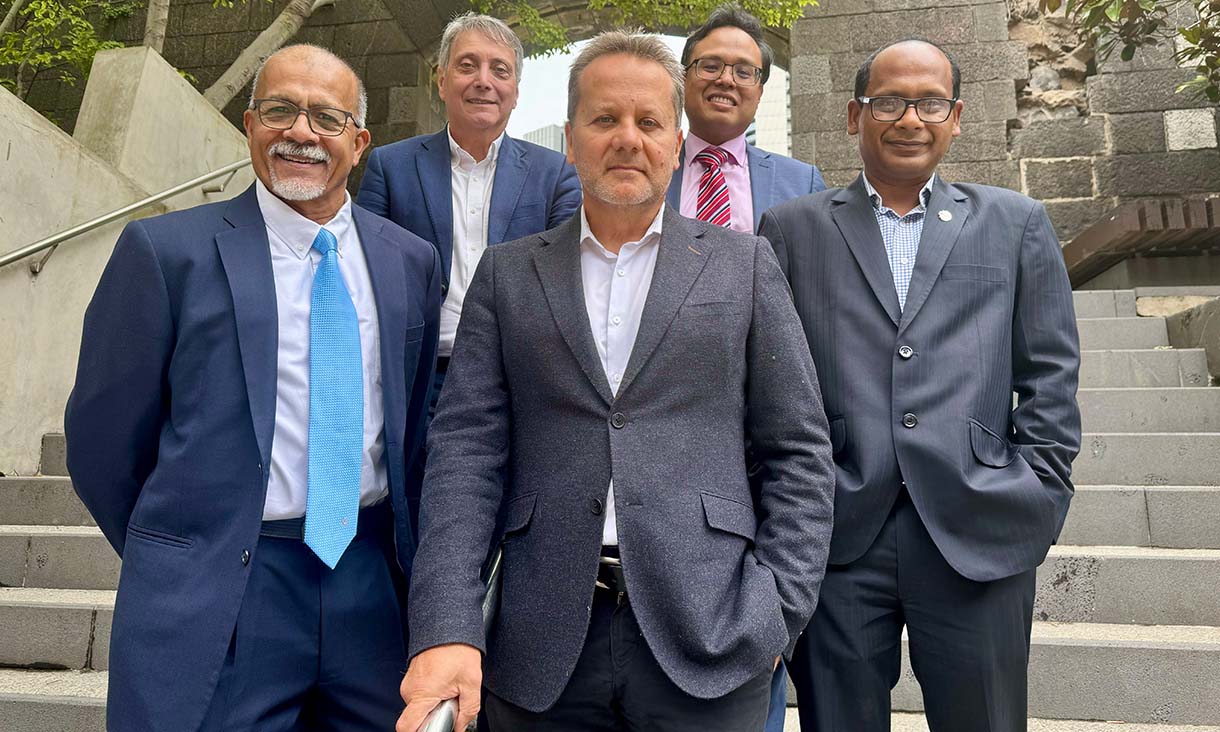A new test, similar to COVID-19 rapid antigen tests, could detect a common infection in expecting mothers within minutes, potentially saving the lives of 150,000 newborns around the world every year.
Group B Streptococcus (GBS) bacteria is carried by 1 in 5 pregnant women, and GBS infection can cause serious complications, leading to preterm births, stillbirths and neonatal deaths.
The good news is the infection, once detected, is easily treatable with standard antibiotics.
RMIT University is part of a consortium that has just won $3 million in funding in the latest Cooperative Research Centres Projects (CRC-P) round for StrepSure®, a sensor technology that's anticipated to be able to identify GBS bacteria within minutes.
RMIT has already filed a provisional patent application to protect the key intellectual property underpinning the GBS sensor technology.
Within the next 3 years, the RAT-like technology will undergo large-scale clinical trials and be taken to regulators in Australia, the United States and the United Kingdom.
 RMIT's Sir Ian Potter NanoBioSensing team with industry partner NEXSEN Biotech: (left to right) Dr Satya Sarker (RMIT), Dr Gayatri Bagree (RMIT), Mr Mark Muzzin (Chairman, NEXSEN), Professor Vipul Bansal (RMIT), Mr Thomas Hanly (CEO, NEXSEN) and PhD scholar Erangi Amarasinghe. Credit: Will Wright, RMIT University
RMIT's Sir Ian Potter NanoBioSensing team with industry partner NEXSEN Biotech: (left to right) Dr Satya Sarker (RMIT), Dr Gayatri Bagree (RMIT), Mr Mark Muzzin (Chairman, NEXSEN), Professor Vipul Bansal (RMIT), Mr Thomas Hanly (CEO, NEXSEN) and PhD scholar Erangi Amarasinghe. Credit: Will Wright, RMIT University
RMIT is partnering with innovation company NEXSEN Biotech, clinicians at Northern Health and Atomo Diagnostics.
Lead researcher Professor Vipul Bansal from RMIT said testing for GBS during weeks 36 to 37 of a pregnancy took 5 to 7 days in a pathology lab.
"This new sensor technology would cut the testing time down to 15 minutes. That won't just save babies' lives, it will also save millions in medical costs," said Bansal from the School of Science.
GBS pathology testing cost the Australian healthcare system about $94 million last financial year.
 This new sensor technology would cut the testing time down to 15 minutes. Credit: Will Wright, RMIT University
This new sensor technology would cut the testing time down to 15 minutes. Credit: Will Wright, RMIT University
NEXSEN Managing Director Thomas Hanly said many developing and developed countries did not screen for GBS, leading to preventable pre-term births, stillborn births and disabilities creating emotional and financial pressure for families and disability support agencies.
"A rapid accessible test can bring hope and we are excited to work with Vipul and his team at RMIT to bring this solution to the world," he said.
Bansal said the RMIT team had very strong capabilities both in biosensor development and biomarker discovery, and had developed a range of nano-sensor technologies to detect very small amounts of bacteria, pathogens and viruses.
"We have developed biomarkers that can detect GBS bacteria with accuracy and high sensitivity," said Bansal, Director of the Sir Ian Potter NanoBioSensing Facility at RMIT.
"Now we are in the process of making a prototype test, to detect the presence of GBS in vaginal swabs. The test will show a colour change when GBS is present in the samples."
Total funding for the GBS sensor project is $7.6 million, with a $3 million grant from the Federal Government for field trials of new low-cost sensor technology in the Northern Health system.
"We will optimise the sensor through pre-clinical trials in the second year, before NEXSEN will conduct clinical trials and then take the final product with the results to regulators in Australia, the US and the UK," Bansal said.
Associate Professor Prahlad Ho, Chair of Northern Health Research Executive Committee and Divisional Director of Diagnostic Services, said Northern Health was proud and excited to be the clinical partner in the project, which will help improve clinical outcomes for babies.
"As one of the busiest healthcare providers in the region, Northern Health is committed to providing the best care for its large volume of clinically and ethnically diverse populations through its research collaborations and partnerships," he said.
"Northern Health's clinical partnership, led by Professor Lisa Hui and the Northern Pathology team, will enable the clinical testing of the diagnostic sensor being developed, thereby making it available for wider and equitable use in the community."
 Left to right: Professor Shekhar Kumta (Professor of Surgery, Northern Health), Mr Mark Muzzin (Chairman, NexSen), Mr Thomas Hanly (CEO, NexSen), Associate Professor Prahalad Ho (Chair of Northern Health Research Executive Committee and Divisional Director of Diagnostic Services) and Professor Vipul Bansal (Founding Director, Sir Ian Potter NanoBioSensing Facility, RMIT University). Credit: Will Wright, RMIT University
Left to right: Professor Shekhar Kumta (Professor of Surgery, Northern Health), Mr Mark Muzzin (Chairman, NexSen), Mr Thomas Hanly (CEO, NexSen), Associate Professor Prahalad Ho (Chair of Northern Health Research Executive Committee and Divisional Director of Diagnostic Services) and Professor Vipul Bansal (Founding Director, Sir Ian Potter NanoBioSensing Facility, RMIT University). Credit: Will Wright, RMIT University
The Hon. Ed Husic, Minister for Industry and Science, said the development of this "Aussie know-how" would give doctors a fighting chance against one of the leading causes of death and disability for newborn babies.
"The fact this technology also offers the potential to free up tens of millions of dollars within our healthcare system to help other Australians in need is just cherry on the cake," he said.
"Just more proof that Australian science and our know-how matters and can make a difference."






